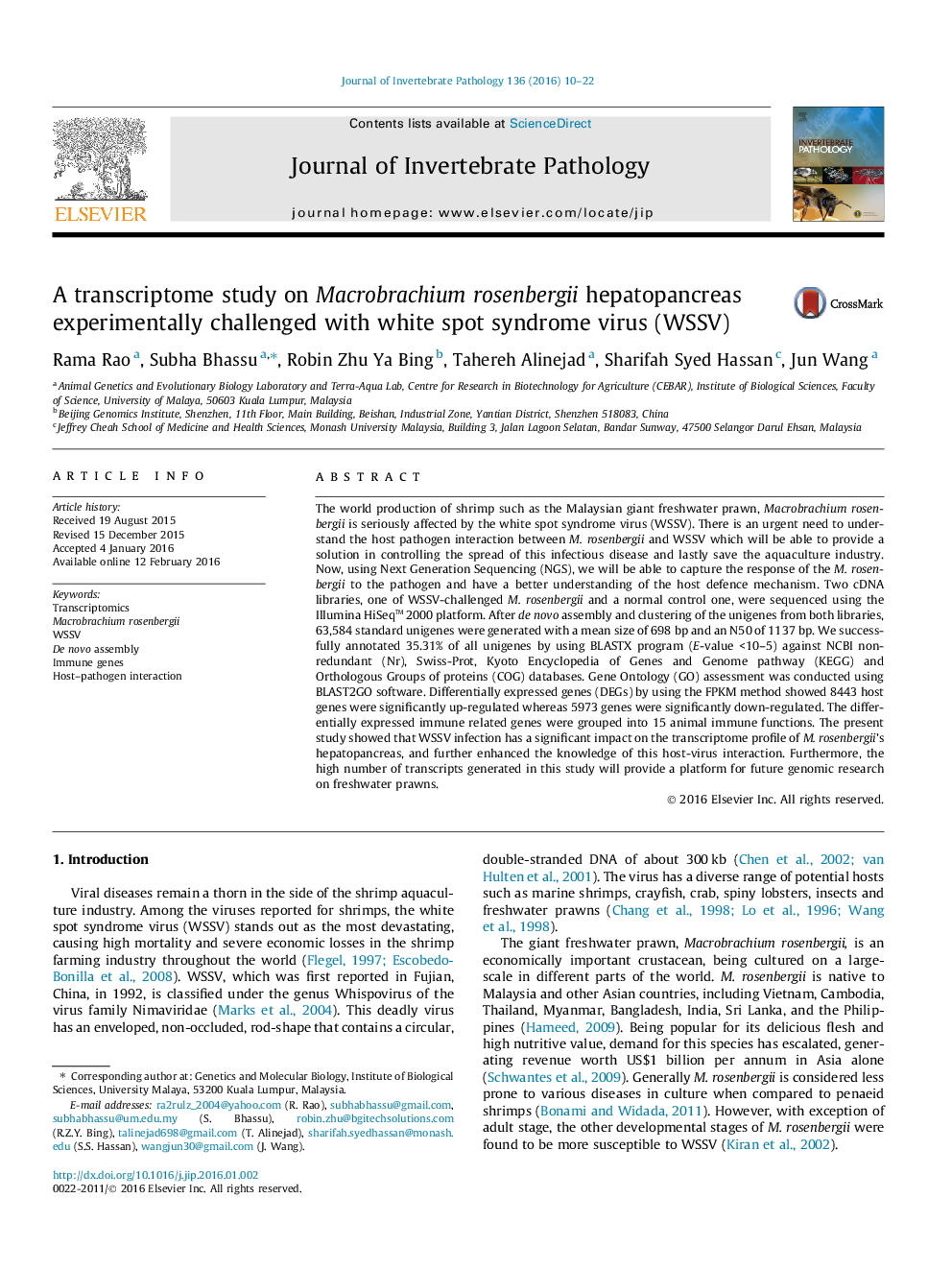| Article ID | Journal | Published Year | Pages | File Type |
|---|---|---|---|---|
| 4557577 | Journal of Invertebrate Pathology | 2016 | 13 Pages |
•The white spot syndrome virus (WSSV) is one of the major pathogens that affect shrimp production around the world.•15 animal immune function genes were diffrentially expressed to capture response using real time PCR and next generation sequencing and its response captured by hepatopancrease.•The role and importance of these immune related genes can further investigated for selection and forming disease resistance lines in this species.
The world production of shrimp such as the Malaysian giant freshwater prawn, Macrobrachium rosenbergii is seriously affected by the white spot syndrome virus (WSSV). There is an urgent need to understand the host pathogen interaction between M. rosenbergii and WSSV which will be able to provide a solution in controlling the spread of this infectious disease and lastly save the aquaculture industry. Now, using Next Generation Sequencing (NGS), we will be able to capture the response of the M. rosenbergii to the pathogen and have a better understanding of the host defence mechanism. Two cDNA libraries, one of WSSV-challenged M. rosenbergii and a normal control one, were sequenced using the Illumina HiSeq™ 2000 platform. After de novo assembly and clustering of the unigenes from both libraries, 63,584 standard unigenes were generated with a mean size of 698 bp and an N50 of 1137 bp. We successfully annotated 35.31% of all unigenes by using BLASTX program (E-value <10–5) against NCBI non-redundant (Nr), Swiss-Prot, Kyoto Encyclopedia of Genes and Genome pathway (KEGG) and Orthologous Groups of proteins (COG) databases. Gene Ontology (GO) assessment was conducted using BLAST2GO software. Differentially expressed genes (DEGs) by using the FPKM method showed 8443 host genes were significantly up-regulated whereas 5973 genes were significantly down-regulated. The differentially expressed immune related genes were grouped into 15 animal immune functions. The present study showed that WSSV infection has a significant impact on the transcriptome profile of M. rosenbergii’s hepatopancreas, and further enhanced the knowledge of this host-virus interaction. Furthermore, the high number of transcripts generated in this study will provide a platform for future genomic research on freshwater prawns.
Graphical abstractFigure optionsDownload full-size imageDownload as PowerPoint slide
